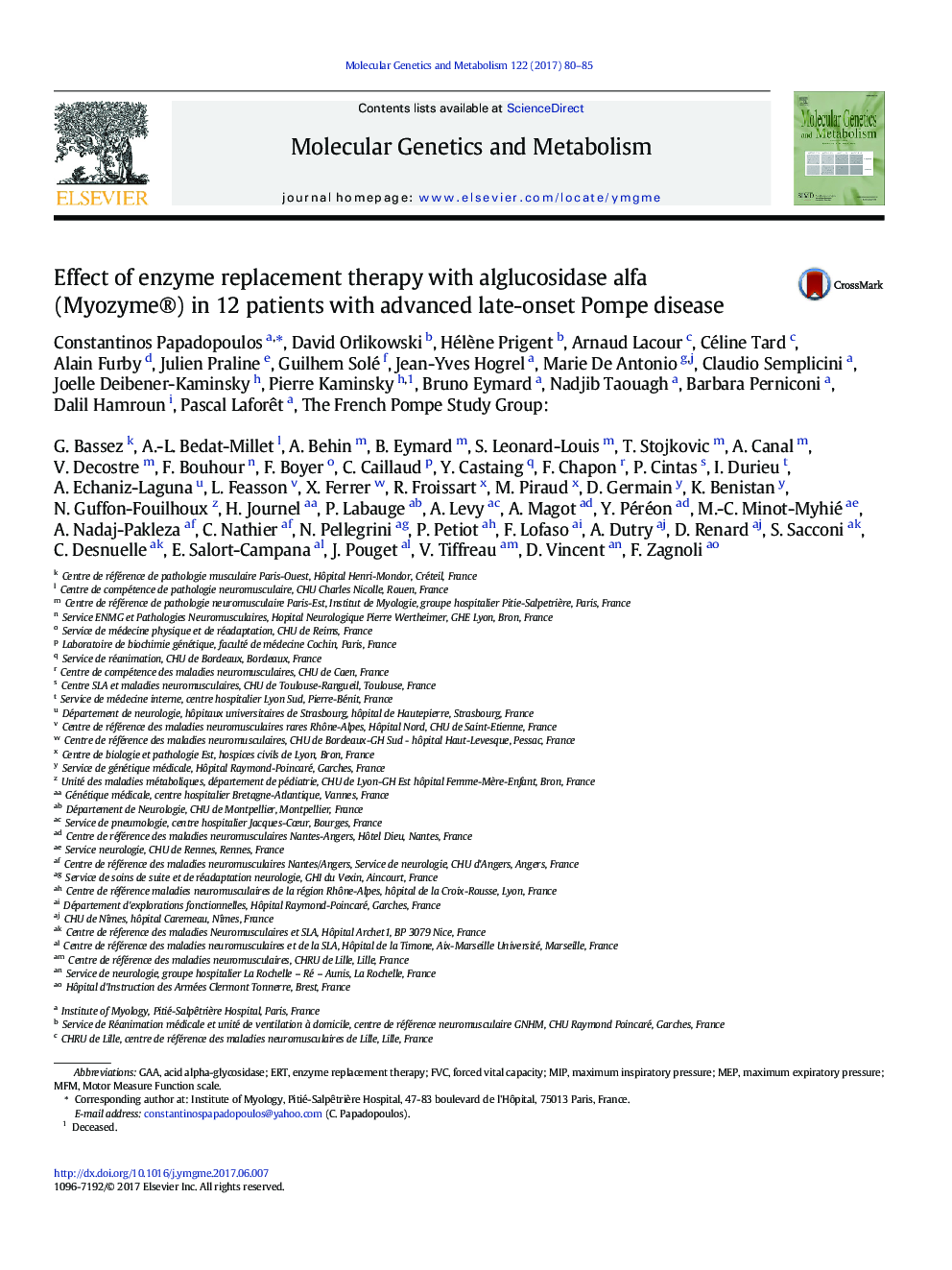| Article ID | Journal | Published Year | Pages | File Type |
|---|---|---|---|---|
| 5513894 | Molecular Genetics and Metabolism | 2017 | 6 Pages |
â¢The efficacy of ERT in patients at an advanced stage of Pompe disease, confined in a wheelchair and ventilator dependent, has not been proven in a randomized trial.â¢We identified patients from the French Pompe Registry with severe respiratory failure and permanent wheelchair use (assisted walk for a few meters was allowed) when starting ERT.â¢During observational period no adverse reaction to ERT was recorded, five patients (41.67%) died, three decreased their ventilation time by 30, 60 and 90 minutes and two increased their assisted walking distance, by 80 and 20 meters.â¢Some patients at a very advanced stage of Pompe disease may show a mild benefit from ERT, in terms of increased time of autonomous ventilation and of enlarged distance in assisted walk.
BackgroundThe efficacy of enzyme replacement therapy (ERT) in patients at an advanced stage of Pompe disease has only been addressed in a few studies. Our objective was to assess the long term effects of ERT in a cohort of patients with severe Pompe disease.MethodsWe identified patients from the French Pompe Registry with severe respiratory failure and permanent wheelchair use (assisted walk for a few meters was allowed) when starting ERT. Patients' medical records were collected and reviewed and respiratory and motor functions, before ERT initiation and upon last evaluation were compared.ResultsTwelve patients (7 males) were identified. Median age at symptom onset was 24Â years [IQRÂ =Â 15.5; 36.0]. At baseline ventilation was invasive in 11 patients and noninvasive in one, with a median ventilation time of 24Â h [IQRÂ =Â 21.88; 24.00] (min 20; max 24). ERT was initiated at a median age of 52.5Â years [IQRÂ =Â 35.75; 66.50]. Median treatment duration was 55Â months [IQRÂ =Â 39.5; 81.0]. During observational period no adverse reaction to ERT was recorded, five patients (41.67%) died, three decreased their ventilation time by 30, 60 and 90Â min and two increased their assisted walking distance, by 80 and 20Â m.ConclusionSome patients at a very advanced stage of Pompe disease may show a mild benefit from ERT, in terms of increased time of autonomous ventilation and of enlarged distance in assisted walk. ERT can be initiated in these patients in order to retain their current level of independence and ability to perform daily life activities.
